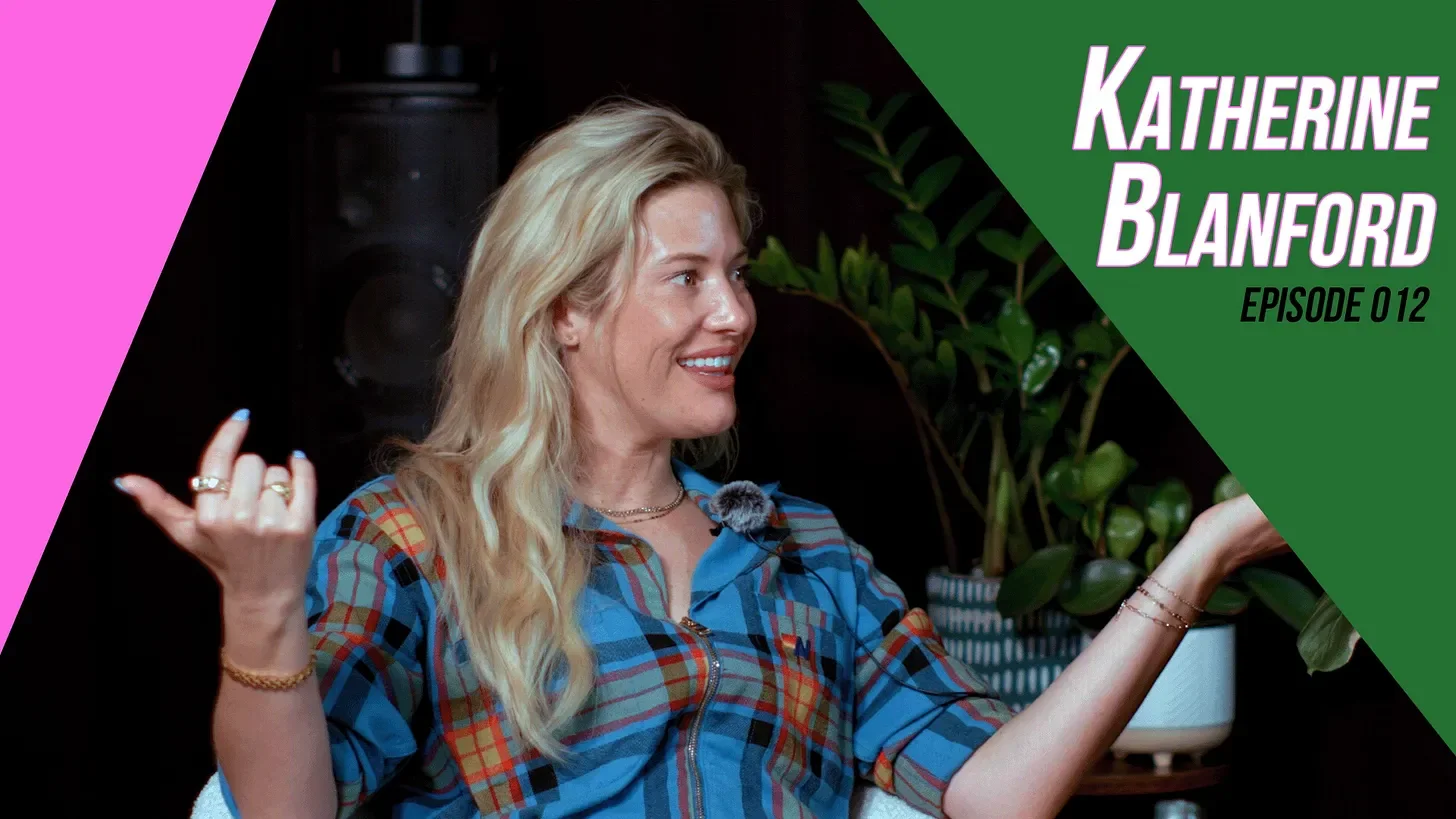xanyland Episode 12: Katherine Blanford and the Chaos That Made Us
This episode was fun, sharp, and one of my personal favorites, right alongside Jessica Michelle’s. We all have our favorites. This was one of mine.
I sat down with Katherine Branford, and yes, I was cackling the entire time. No shame. Maybe a little shame. I laughed really loudly at all her jokes.
Katherine is a thirty-two-year-old from Kentucky who started out doing stand-up in Atlanta before relocating to Los Angeles. She is the definition of a road comic, on the road almost every weekend, testing and touring her “comedically truthful” material. She also co-hosts the podcast Coastal Idiots with Shane Torres, a variety and sketch show that features a fake therapist. I would love to be on that show to fight with their fake therapist. Put in a word for me.
Picture this: a baby millennial talking to a Gen X-er about Boomers. That’s this episode, sort of. This episode goes all over the place, but it has some points to make about male parents. Katherine and I agreed that if women still raised children together in villages without men around, the world would be a much better place. I was raised without a father, which meant growing up in a home without toxic masculinity, and I am grateful to lack that psychological burden. If strong opinions from women make you squirm, this is not your podcast.
Boomers. We all know them, we love some of them, and many of us can agree that they are often the source of our triggers. Let me say sorry to my elders now, but you definitely got the mental health shaft. We decided, if you want to be famous, history suggests you should start with a parent who believes the world revolves around them. My episode with Julia Jasunas dug into narcissism in romantic relationships, and with Katherine, we took that education further by looking at how narcissism shapes entire family systems.
Today’s vocabulary lesson is attachment theory and object relations, which explains how you relate to your caregivers in early childhood and how that affects your relationships for the rest of your life. Parents are often the architects of our trauma, which intrinsically motivates our future success. Therapists like me assess attachment style through what is essentially a narcissism continuum. Everyone is somewhere on this continuum that we call object relations. Where you fall depends on how much vulnerability you allow, how deeply you can connect, and whether you see others as their own people or only as projections of yourself!!!
Boomers often lean toward the more self-protective end of the spectrum. Many grew up in environments where emotional privacy was expected, and vulnerability was treated as weakness. Katherine teaches us that their comedy reflected that. Observational humor dominated because it kept personal history out of the act. It was sharp, well-crafted, and often timeless, but it was not designed to reveal anything deeply personal.
Comedy today feels different, she says. Younger comics have embraced memoir style, using personal history as the main stage. Katherine said that when she first started, she was not getting laughs at open mics, which is an almost universal experience. Everything changed when she began talking about her mother’s death. She told a joke about not wanting to bury her mom in cute clothes because she could be wearing them herself. That was the moment her material took off.
There is truth in comedy, and truth draws people in. Sharing something deeply personal can be both disarming and magnetic. Vulnerability in comedy is not about oversharing or shock value. A tactic our elders used to rely on. It is about risking something real. Katherine has learned how to hold that risk and deliver it with precision. The joke about her mother’s clothes is surprising and honest, but it also contains a whole story about grief, survival, and how humor can make unbearable things digestible.
Final note: We are all somewhere on the narcissism spectrum. The point is to keep your heart open. That is where the best comedy lives. It is also where the best relationships live. The depth of this episode, shrouded in what looks like two women just razzing men, boomers, and Dune 2, is what makes this conversation with Katherine one of my favorites.
But also, if object relations is “the mother” of attachment theory, that means attachment theory has issues with its object relations! ;)
Watch the episode below, or find xanyland on your favorite podcast platform.

